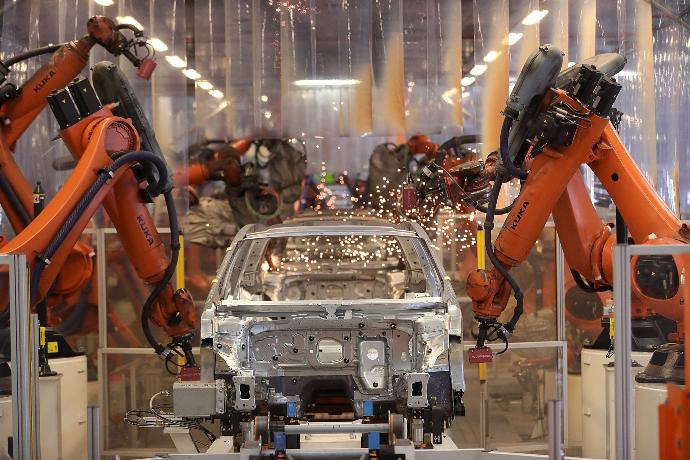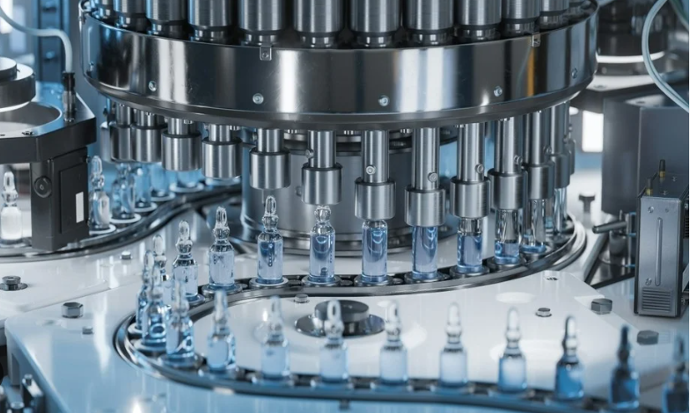In today’s competitive market, manufacturers are always trying to find ways to improve production efficiency to create a competitive advantage. How to maximize productivity while minimizing costs? When this problem was posed, the Manufacturing Execution System (MES) – Factory Production Management System was born and is increasingly becoming a trend that Vietnamese businesses are particularly interested in.
I. What is Manufacturing Execution System (MES)?
An MES is a software-based solution used in manufacturing to monitor and control production processes on the shop floor. In manufacturing operations management, an MES serves as a bridge between the planning and control systems of an enterprise, such as an enterprise resource planning (ERP) system, and the actual manufacturing operations.
The primary purpose of an MES is to track and document the transformation of raw materials into finished products in real time. It captures data from various sources, including machines, sensors and operators, to provide accurate and up-to-date information about the status of production activities.
MES can be applied in many diverse manufacturing industries: apparel, electronics, chemicals, and building materials,… especially in FMCG, food – beverage, and healthcare industries.
II. Examples of Manufacturing Execution System(MES)
MES solutions can be implemented and tailored to suit the specific requirements of various industries. While the core functions of an MES remain consistent across industries, the way they are applied and the specific features might vary. Here are a few examples of how a MES works in different industries:

Automotive
In automotive manufacturing, MES plays a role to track the progress of vehicles on the assembly line, monitor the availability of components and synchronize operations across different workstations.

Pharmaceuticals
MES in the pharmaceutical industry is charged of tracking and document the entire manufacturing process, including batch tracking, genealogy and adherence to good manufacturing practices (GMP).
MES systems in this industry emphasize batch management, recipe management, electronic batch records and real-time quality control.

Food and beverage
In the food and beverage industry, MES systems help manage the complexities of recipe management, formulation and compliance with food safety regulations.
They track ingredients, manage recipes, monitor production rates and enforce quality control procedures.
III. Why do businesses need MES systems?
The manufacturing sector is multifaceted, encompassing a spectrum of production processes from initial product conception to final delivery. To optimize their operations and improve productivity, manufacturers are progressively embracing technology solutions such as Manufacturing Execution Systems (MES) and Enterprise Resource Planning (ERP). While ERP systems have traditionally been the go-to technology solution for manufacturers, MES systems are quickly gaining traction.
If your business is facing one of the common problems in products such as:
- Delayed information, resulting in untimely processing,
- Production interruptions, resulting in the production of goods that are behind schedule or of poor quality,
- Difficulty in innovating to catch up with market trends,
- Time-consuming, risky, and error-prone due to manual processes and paperwork
- Can not be managed visually, difficult to track because there are too many systems in the factory, discrete systems, not linked together,
- Having problems in traceability, document tracing,
Maybe, your business needs a MES system.
IV. Main functions of the MES system
1. Product Quality Management
The MES system centralizes product definitions and facilitates data exchange with other information systems regarding standardized production rules, associated documents, and certificates. This integration results in a cohesive information system, ensuring that manufactured goods adhere precisely to standardized specifications.
The MES system establishes real-time product traceability, enabling tracking, searching, and record-keeping. This functionality assists administrators in comprehending the status of work-in-progress (WIP) and finished products, ensuring quality control throughout production, and expediting product recalls when necessary.
The data about products, workers or machines will be collected by the MES system, stored data, and given real-time reports. This helps businesses update error detection in the production process immediately. At the same time, MES also integrates quick technical solutions, minimizing defects in goods, and ensuring better product quality.
2. Production Process Management
The Manufacturing Execution System facilitates the registration, oversight, and analysis of factory resources, guaranteeing their availability and optimal capacity utilization. By mitigating production interruptions and minimizing errors stemming from resource constraints, it enhances operational efficiency and product quality.
MES collects information from orders, and requirements from ERP systems or other enterprise planning systems, thereby making optimal use of available resources. At the same time, MES also monitors the production process, and completed orders of shipments, ensuring on-time production and delivery.
From updating the raw data from the factory, the analytical MES system provides useful information about the production status such as Inventory (WIP), Overall Equipment Efficiency (OEE), production efficiency, etc. export,…
Most of the MES systems are equipped with statistical functions such as online histogram, Xbar-R, Xbar-S, P, Pn,… and limit calculations, thereby detecting the missing points. reasonable in the production process and provide solutions.
The information is digitized from the notepad into the web/tablet system and pushed the information from the SCADA system into a common data source. Improved problem solving of the environment.
If you have any further questions about our MES-X Manufacturing Execution System, do not hesitate to contact us.